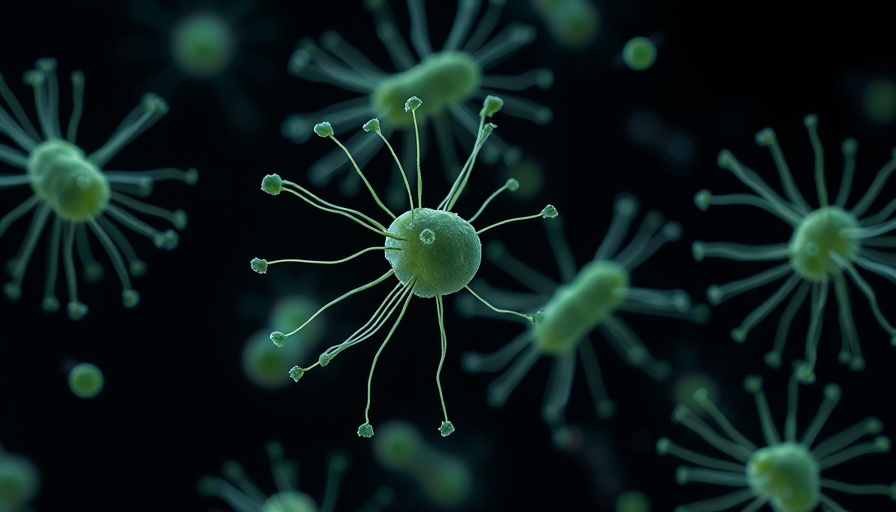
Caffeine's Role in Antibiotic Resistance: An Unexpected Connection
As coffee becomes a staple in our daily routines, recent research suggests that the caffeine boost we rely on could have unintended consequences. A study by researchers from the Universities of Tübingen and Würzburg highlighted how caffeine can influence bacterial resistance to antibiotics, particularly in strains of Escherichia coli (E. coli). This finding opens up new avenues for understanding antibiotic efficacy in everyday settings.
How Everyday Substances Influence Bacteria
In an expansive examination of 94 substances, including common dietary ingredients and medications, researchers uncovered an intriguing link between caffeine and antibiotic absorption. By altering the expression of key gene regulators that control transport proteins within bacteria, caffeine led to a reduced uptake of the antibiotic ciprofloxacin. This 'antagonistic interaction' suggests that even substances without direct antimicrobial properties can profoundly affect bacteria’s response to treatment.
Understanding the Science Behind Resistance
Antibiotic resistance is a pressing global health threat, often exacerbated by the misuse of antibiotics and insufficient research on interactions with non-medical substances. This study sheds light on the molecular mechanisms at play, emphasizing their complexity. Caffeine triggers a chain reaction starting with the gene regulator Rob, impacting the functionality of transport proteins crucial for sustaining bacterial life. These proteins act as gatekeepers that determine how various substances—including antibiotics—enter and exit bacterial cells.
Not All Bacteria React Similarly
While caffeine’s influence was pronounced in strains of E. coli, the response was notably different in another common pathogen, Salmonella enterica. This distinction underlines the importance of recognizing that not all bacteria will react uniformly to the same stimuli, an essential consideration for developing effective treatments and understanding antibiotic efficacy.
The Broader Implications for Health and Wellness
For business professionals and decision-makers in tech-driven industries, understanding these findings could lead to innovative developments in health tech and wellness. Exploring how dietary habits influence health outcomes could unveil new opportunities for product development in the wellness sector, particularly in the intersection of nutrition and drug efficacy.
Future Directions: Beyond Coffee
As researchers continue to investigate the dietary influences on bacterial behavior, we may see new insights emerge that expand our understanding of nutrition and health. This could lead to fortified foods or supplements designed to enhance the efficacy of antibiotics, transforming how we approach health and wellness in our daily lives.
Steps Towards Better Health Choices
As the complexities of everyday substances like caffeine on antibiotic effectiveness become clearer, consumers should remain informed about their dietary choices and their potential impacts on health. Increased awareness can foster better decision-making regarding food and medication, ultimately resulting in improved health outcomes in both personal and public health contexts.
As we learn more about the intricate interactions between our diets and health, it’s crucial for professionals, particularly in the marketing and tech industries, to leverage this knowledge strategically in product development and messaging. The findings from this research present not just challenges but opportunities as we step into a more informed era of health and wellness.
 Add Row
Add Row  Add
Add 




Write A Comment